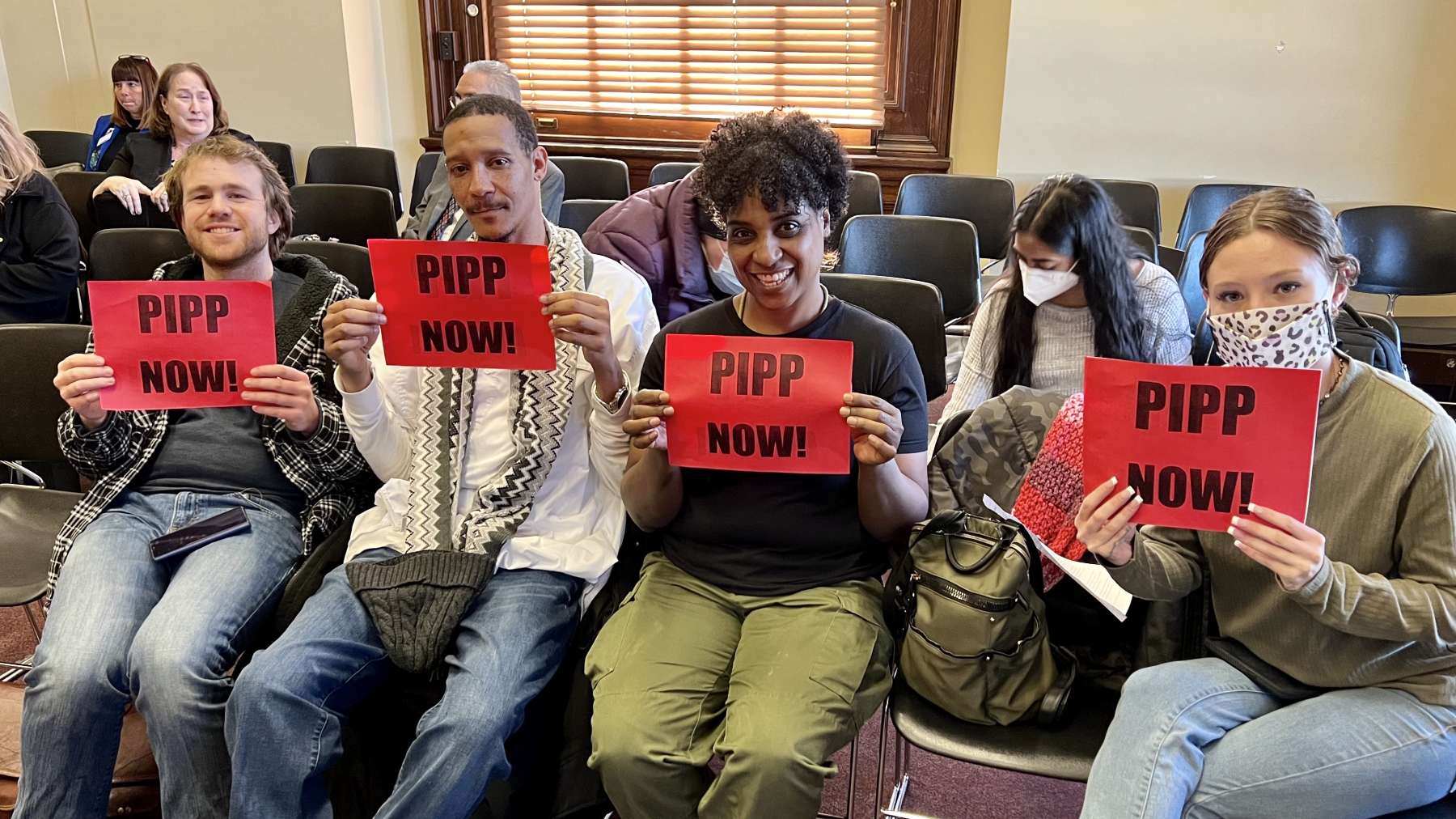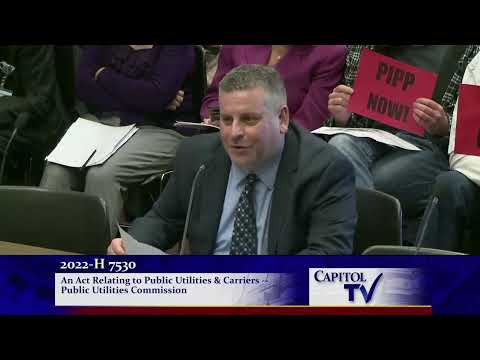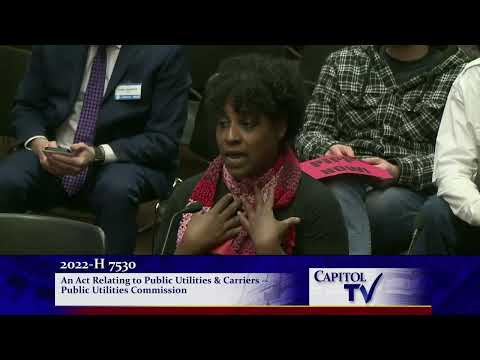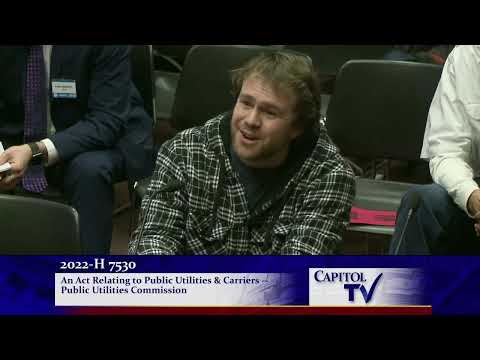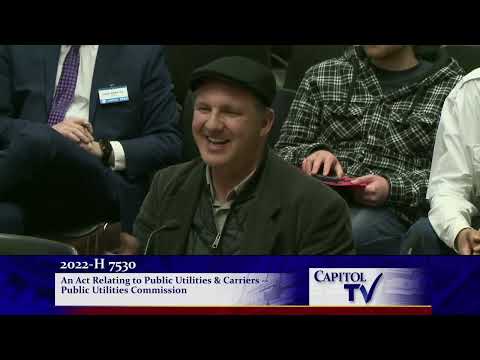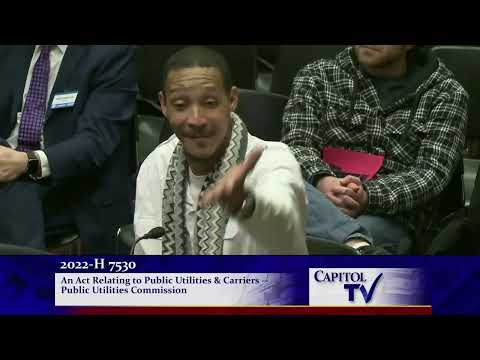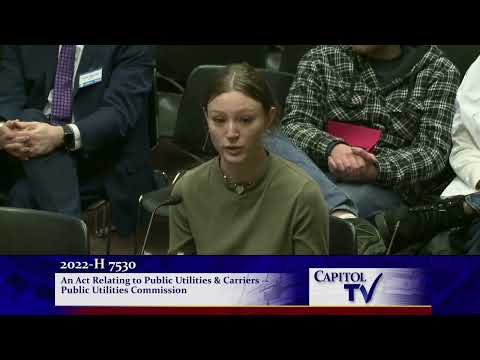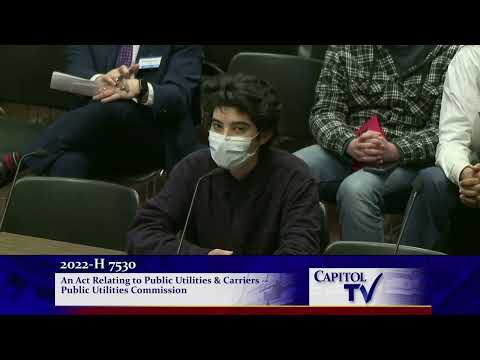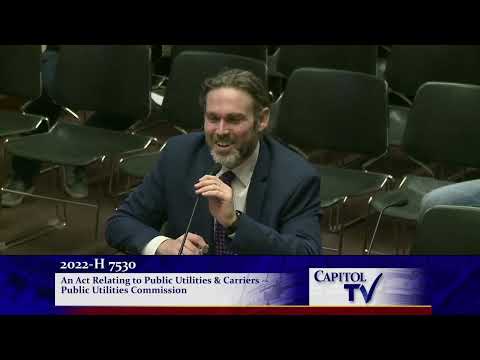PIPP will help low-income Rhode Islanders pay their utility bills and avoid costly shut-offs
“It is very difficult to shuffle and reprioritize my responsibilities so I can continue to nourish and flourish in life and work. I just know that the Percentage of Income Payment Plan would be so helpful and significant in balancing my budget because it would give me a fixed rate instead of using to speak to someone in customer service because they’re terminating my utilities.
March 9, 2022, 2:37 pm
By Steve Ahlquist
Over a dozen supporters gathered in room 101 of the Rhode Island State House on Tuesday to testify in favor of House Bill 7530. The bill, formerly known as the Percentage of Income Home Energy Affordability Act (PIPP), would allow low-income Rhode Islanders to pay lower utility rates. The bill, submitted by Representative Scott Slater (Democrat, District 10, Providence), creates a multi-tiered income-sensitive subsidy program to ensure that home energy utility costs are affordable for eligible low-income households.
Currently over a dozen states, such as Ohio, New Jersey, New Hampshire, and Maine have PIPP programs. In Illinois, PIPP lowered 90% of elderly customers’ heating bills – more than any other utility assistance plan, including LIHEAP (Low Income Home Energy Assistance Program). Decades ago Rhode Island had a PIPP program but that was discontinued, and currently Rhode Island faces a shut-off crisis as people go through the trauma of utility termination – suffering for days, weeks or even months without electricity or heat.
According to the George Wiley Center, which has long advocated for the restoration of PIPP,
“PIPP programs help make sure all have access to affordable utility service. Under a PIPP, low-income households pay a fixed percentage of their income for utility bills. This percentage depends on the Federal Poverty Level of that household – in order to have a fairer utility rate structure those with the lowest income should not pay the highest percentage of their income for utility bills. Right now, Rhode Islanders living under the Federal Poverty line routinely spend higher percentages of their income on utilities compared to higher income households.”
- Reduces eligible households’ energy burden to an affordable percentage of income
- Eligible to households at or below 150% federal poverty level who are eligible for LIHEAP or enrolled in Medicaid
- A PIPP plan would allow people with the lowest incomes to pay a more manageable amount for their utilities and help stop the shut-off crisis in Rhode Island.
Here’s all the video, starting with Representative Slater introducing his bill:
“As a low-income household provider, I have come across times when my fiscal responsibilities have been overwhelming,” said Barbara Fleury. “And I’ve been forced to choose… of course you pay your rent and utilities, you do your best, and then whatever is left for discretionary income you use for food, necessities, toiletries, things like that.
“It is very difficult to shuffle and reprioritize my responsibilities so I can continue to nourish and flourish in life and work. I just know that the Percentage of Income Payment Plan would be so helpful and significant in balancing my budget because it would give me a fixed rate instead of using to speak to someone in customer service because they’re terminating my utilities.”
“Frequently, day to day, we see folks coming in who between rent and their utilities are sometimes paying upwards of 60-70% of their gross monthly income before any other cost of living expenses,” said Kevin McElroy, an organizer at the George Wiley Center.
“This is really your opportunity to fix this broken cycle of utility terminations,” said Camilo Viveiros, Director of the George Wiley Center, to the committee members.
“I’m new to Rhode Island and I come from poverty,” said Seth Stradle. “I was blessed to have a second chance at life. With my second chance I feel my calling is to help those that need help.
“I believe the only way to acknowledge a problem is to see the problem and not only see the problem, but to acknowledge where it’s coming from – The pain of not being able to pay your bills. The struggle of trying to. Trying to get a job. All these things need to be acknowledged not only by the people who are suffering, but the people who can make the difference.”
“Most of the folks that we work with, myself included, categorize as low income,” said Lillian Kirby, a volunteer with the George Wiley Center. “As you know, seniors on fixed incomes are really getting $700 to $800 a month – and when you’re faced with a utility bill that’s $350, that’s 50% of something you’re supposed to make on a monthly income.”
Kirby also pointed out that many low-income Rhode Islanders and people of color live in older, less insulated homes with much higher utility costs.
Losing utilities is related to high rates of house fires and exacerbates negative health issues said Lily Gordon, who researches the negative effects of power loss. Lack of lighting in the evening can affect children doing their home work, resulting in worse educational outcomes.
“It really affects, most prominently, those who are already vulnerable,” said Gordon. “We are talking about issues that are fundamental to human health.”
Hank Webster, Director of the Acadia Center noted that homes need to be better insulated and weatherized to reduce energy costs.



